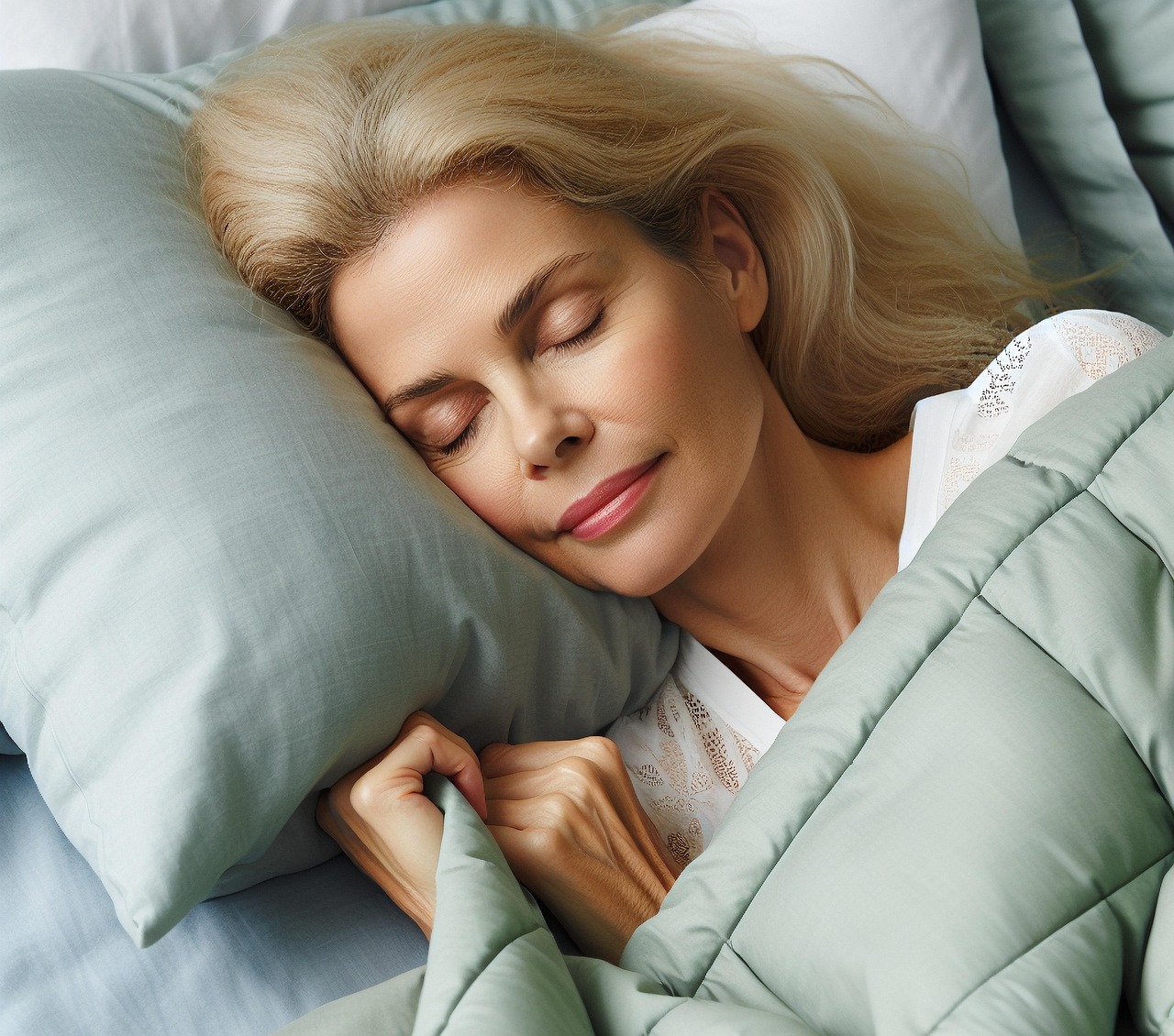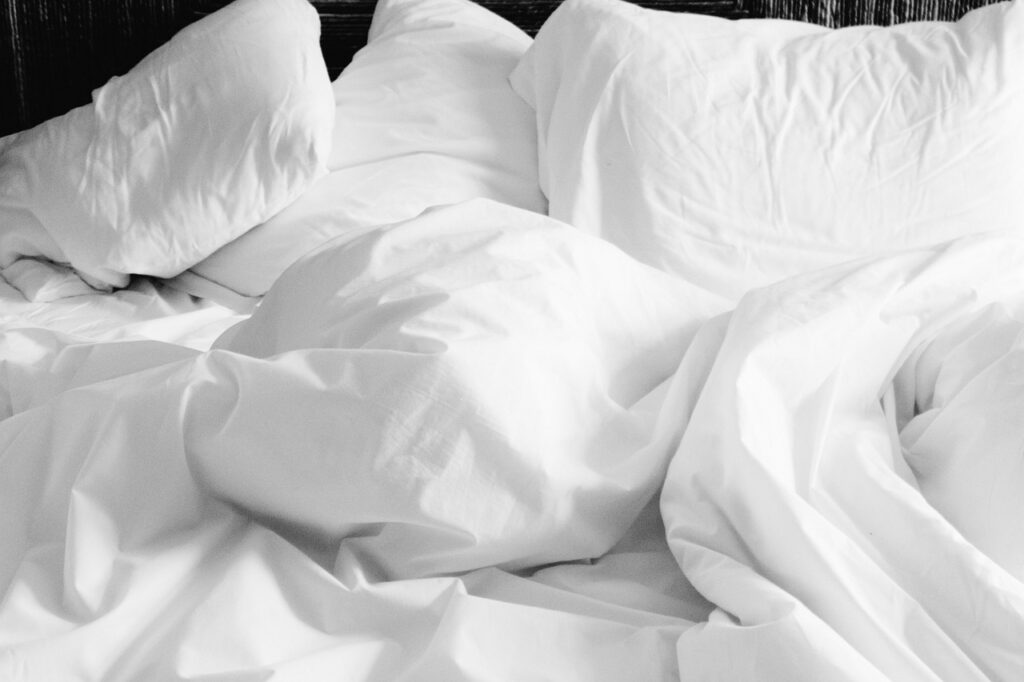You’ll discover:
-
Why sleep hygiene is more powerful than any supplement or medication
-
The three key behaviors I tell every patient to try before anything else
-
How your brain associates your bed with sleep; and why that matters
-
What DSIP (Delta Sleep-Inducing Peptide) is, how it works, and when to consider it
-
Why better sleep is foundational for brain health, hormones, and longevity
If there’s one thing we all love to complain about but rarely take seriously enough to fix- it’s sleep. I hear it all the time in clinic. “I just can’t fall asleep.” “I wake up at 3 a.m. and my brain won’t shut off.” “I’m tired all day but wide awake at night.”
And while we love to blame it on stress, hormones, the neighbor’s pack of dogs, or just getting older, the reality is that many of us are breaking some of the most basic sleep hygiene rules every. single. night.
Let’s talk about 3 things you can literally do tonight, for free, to set yourself up for deeper, better-quality sleep.

1. Get Off Electronics an Hour Before Bed
Yes, even your Kindle. Your phone, tablet, laptop, TV. All of it. The blue light exposure from these screens suppresses melatonin production (the hormone that tells your brain it’s time to sleep), and it messes with your circadian rhythm more than you think.
If you’re using your phone in bed, doom scrolling or even reading the news, it’s not just about the content, it’s what the light is doing to your brain. That glow tells your brain, “Hey, it’s daytime. Stay alert.”
Try this instead: Dim the lights in your home about an hour before bedtime. Turn off the screens, read a paperback book, play music, journal, stretch, take a shower, or just talk to your partner (you know, with actual words). These small shift can make a massive difference in how fast you fall asleep.
2. Get Morning Sunlight Exposure
This might sound like some crunchy granola advice, but the science is solid, and it’s a very primitive thing. Getting sunlight into your eyes as early as possible after waking helps anchor your circadian rhythm, and that means you’ll fall asleep easier at night.
Think of it like a 12-hour sandglass timer that starts once your face hits first sunlight.
And no, it doesn’t count if you’re sitting behind a window. Go outside!
3. Move Your Body
Exercise is one of the best-kept secrets for better sleep, and yet people treat it like a punishment. You don’t need to crush a workout or train for a triathlon. Just move. Walk, bike, do 20 minutes of yoga, whatever gets your body engaged.
People who get regular physical activity fall asleep faster, stay asleep longer, and have more time in deep sleep (the phase your body uses to rebuild and recover).
[Don’t hate me here my anti-morning friends…] Just don’t hit the gym too late. Evening workouts can rev up your nervous system and actually make it harder to wind down. I understand some schedules only allow an evening workout, and while a nighttime fitness sesh is better than none, do your best to flip it to a morning routine.
Now… Let’s Talk About Peptides for Sleep
If you’ve dialed in your sleep hygiene: Cut the electronics, gotten your morning sunlight, moved your body, and you’re still struggling, this is where next-level support might make sense. One tool I often use in my practice is DSIP, or Deep Sleep Inducing Peptide.

What Is DSIP?
DSIP is a non-habit-forming (which is why it’s my fav) peptide that’s been shown to improve sleep architecture, especially increasing deep sleep and regulating circadian rhythms. One reason I like DSIP so much is it’s naturally occurring in the body already and plays a role in modulating the sleep–wake cycle, stress hormones, and even pain perception.
This isn’t melatonin- that’s an entirely different sleep tool. And it’s definitely not a sedative. It doesn’t knock you out, but rather supports your body’s natural processes to promote better sleep from the inside out.
Who Should Consider It?
People who:
-
Wake up exhausted, even after 7–8 hours of sleep
-
Feel “wired but tired” at night
-
Travel frequently and deal with circadian rhythm issues
-
Want to reduce reliance on sleep meds
-
Have high cortisol or chronic stress
DSIP can be part of a bigger sleep optimization strategy, especially when combined with proper habits like we talked about above. But if you’re not doing those 3 things, no peptide or sleep aid will save you.
How Do You Use It?
DSIP is typically administered subcutaneously (although nasal spray versions are becoming more mainstream) at night, ideally about 30–60 minutes before bedtime. Dosing and cycling vary, but it’s usually used in short bursts, 7 to 20 nights, then stopped for a reset.
Some people feel the effects night one; for others, it’s more cumulative. But what I hear most from patients is: “I’m finally waking up rested.”
DSIP Isn’t the Only Option
You’ve also got:
-
Magnesium glycinate
-
GABA support
-
Tryptophan or 5-HTP
-
Melatonin (used sparingly)
-
Lifestyle coaching around stress, nutrition, and sleep patterns
But DSIP holds a special place because it doesn’t force sleep, it supports your natural ability to get there.

Final Thoughts
Sleep is free but not easy. You have to earn it. You have to train your brain to wind down, give your body the right signals, and stop throwing off your internal rhythm with late-night chaos and overstimulation.
So today, try the 3 free ones: Get off your phone, move your body, and step outside in the morning sun. And if you’ve done all the right things and still feel like a zombie every morning, maybe it’s time to explore tools like DSIP or other peptides for sleep that can give your system a nudge in the right direction.
If you’re curious, DM me. We’ll figure out if a peptide that helps with sleep is right for you, or if your brain just needs a good bedtime routine like the rest of us. If you have questions, or would like to discuss this further, please book a free consultation.
–Clay

